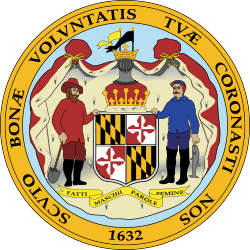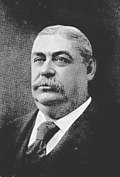| ||||||||||
| ||||||||||
| ||||||||||
| Elections in Maryland |
|---|
 |
The 1899 Baltimore mayoral election saw Thomas Gordon Hayes defeat incumbent mayor William T. Malster by a 8,748 vote margin-of-victory. [1] This was the first election under a new charter that extended mayoral terms from two years to four years and moved mayoral elections to May. [1]
By campaigning on a "good government" platform, Democrats managed to defeat Malster, who in his previous election had defeated Democrat Henry Williams by a 6,000 vote margin-of-victory. [1]

